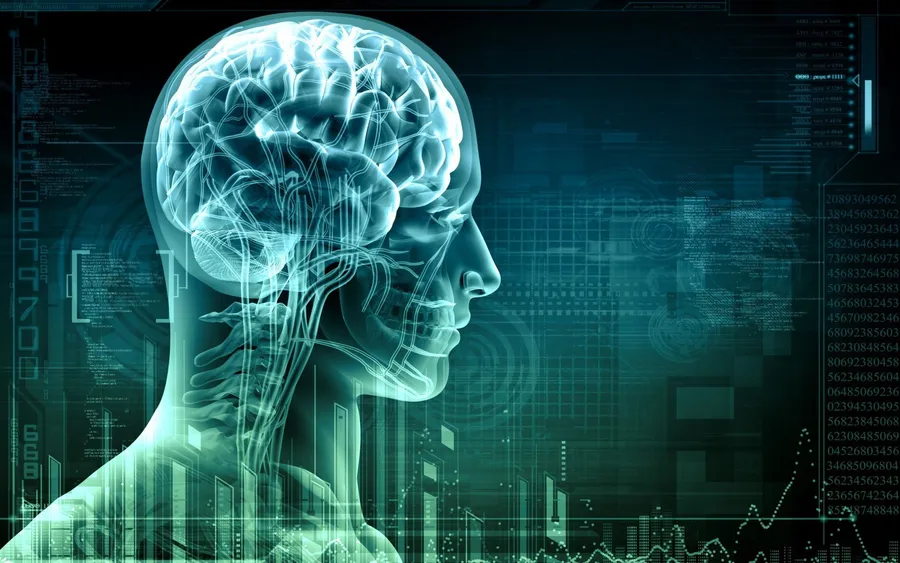What is Cognitive Psychology?
Cognitive psychology is a fascinating branch of psychology that focuses on the study of mental processes such as thinking, problem-solving, memory, perception, and language. It aims to understand how people acquire, process, store, and retrieve information. By studying the workings of the human mind, cognitive psychologists are able to develop insights into various aspects of human behavior and decision-making.
History of Cognitive Psychology
Early Beginnings
The roots of cognitive psychology can be traced back to ancient Greek philosophers like Socrates, Plato, and Aristotle, who pondered questions about the nature of human thought and knowledge. However, it wasn’t until the late 19th and early 20th centuries that cognitive psychology began to emerge as a distinct field of study, with pioneers like Wilhelm Wundt, Edward Titchener, and William James laying the groundwork for future research.
The Cognitive Revolution
In the 1950s and 1960s, a paradigm shift known as the cognitive revolution transformed the field of psychology. Researchers began to focus more on mental processes and less on behaviorist principles. This shift was driven by several factors, including the emergence of computer science and the growing interest in artificial intelligence. The development of new technologies, such as the computer, provided researchers with tools and models for understanding complex cognitive processes, leading to a resurgence of interest in the study of the mind.
Key Concepts
Mental Processes
Mental processes are the various cognitive activities that occur within the brain. These include perception, attention, memory, language, problem-solving, and decision-making. Cognitive psychologists seek to understand how these mental processes work and how they influence human behavior.
Information Processing
Information processing is a central concept in cognitive psychology. It refers to the way the human mind receives, encodes, stores, and retrieves information. Cognitive psychologists often use computer-based models to explain how information is processed by the brain, drawing parallels between the human mind and a computer’s processing capabilities.
Schema Theory
Schema theory proposes that our knowledge is organized into mental frameworks called schemas. These schemas help us understand and interpret new information by relating it to our existing knowledge. Schema theory helps explain how we make sense of the world around us, form expectations, and learn new concepts.
Major Theories
Cognitive Dissonance Theory
Cognitive dissonance theory, developed by Leon Festinger, posits that individuals experience psychological discomfort when they hold two or more contradictory beliefs, attitudes, or values. To reduce this discomfort, people will either change their beliefs or attitudes or rationalize the inconsistency. This theory has been widely applied in various fields, including marketing, decision-making, and social psychology.
Social Cognitive Theory
Social cognitive theory, developed by Albert Bandura, emphasizes the role of cognitive processes in social interactions and the acquisition of new behaviors. This theory posits that individuals learn not only through direct experience but also through observing others and the consequences of their actions. Social cognitive theory has been particularly influential in the study of self-regulation, motivation, and the role of self-efficacy in goal achievement.
Research Methods
Experimental Approach
Experimental research is a cornerstone of cognitive psychology. By manipulating specific variables and measuring their effects on cognition, researchers can gain insights into the underlying mental processes. This approach allows for the establishment of cause-and-effect relationships, which can be crucial in understanding the complex nature of human cognition.
Case Studies
Case studies are in-depth examinations of individual cases or events, often involving individuals with unique cognitive abilities or deficits. These studies can provide valuable insights into the functioning of the human mind, particularly when it comes to rare or exceptional circumstances. Examples of famous case studies in cognitive psychology include the study of H.M., a patient with severe memory loss, and the investigation of Phineas Gage, a man who experienced a dramatic personality change following a brain injury.
Applications
Clinical Psychology
Cognitive psychology has had a significant impact on clinical psychology, particularly in the development of cognitive-behavioral therapy (CBT). CBT is a widely used therapeutic approach that focuses on identifying and modifying maladaptive thought patterns and behaviors. It has been proven effective in treating a variety of psychological disorders, such as anxiety, depression, and obsessive-compulsive disorder.
Education
Cognitive psychology has also influenced the field of education, providing insights into how students learn and process information. Educators can apply cognitive principles to improve teaching methods and create more effective learning environments. For example, understanding the role of schemas in learning can help teachers develop strategies to facilitate the assimilation of new information, making it easier for students to grasp complex concepts.
Future Directions in Cognitive Psychology
As cognitive psychology continues to evolve, researchers are constantly exploring new avenues and refining existing theories. Here are some of the key areas where cognitive psychology is expected to make advancements in the future:
- Neuroscience and Cognitive Psychology
The integration of neuroscience and cognitive psychology is a rapidly growing area of research. By using advanced neuroimaging techniques, such as functional magnetic resonance imaging (fMRI) and electroencephalography (EEG), researchers can gain a deeper understanding of the neural mechanisms underlying various cognitive processes. This interdisciplinary approach holds great promise for unraveling the complex relationship between brain function and cognition.
- Artificial Intelligence and Machine Learning
The development of artificial intelligence (AI) and machine learning has significant implications for cognitive psychology. By creating computational models that mimic human cognitive processes, researchers can test theories and develop a better understanding of how the mind works. Additionally, insights from cognitive psychology can be used to improve AI systems and make them more human-like in their problem-solving and decision-making abilities.
- Cognitive Aging
As the global population ages, understanding the cognitive changes that occur during the aging process becomes increasingly important. Cognitive psychologists are studying age-related cognitive decline and investigating strategies to maintain cognitive health and promote successful aging. These findings can have practical applications in healthcare, public policy, and the development of interventions to enhance cognitive functioning in older adults.
- Emotion and Cognition
The relationship between emotion and cognition is another burgeoning area of research in cognitive psychology. Researchers are examining how emotions influence various cognitive processes, such as decision-making, memory, and attention. A better understanding of the interplay between emotion and cognition can lead to insights into emotional regulation and the development of treatments for emotional disorders.
- Cognitive Rehabilitation
Cognitive rehabilitation is an area of research focused on developing interventions to improve cognitive functioning in individuals with brain injuries, neurological disorders, or cognitive deficits. By understanding the underlying mental processes, cognitive psychologists can create targeted therapies to help patients recover and regain their cognitive abilities.
Conclusion
Cognitive psychology is a diverse and fascinating field that seeks to understand the intricacies of the human mind. By exploring mental processes, cognitive psychologists have made significant contributions to our understanding of human behavior, decision-making, and problem-solving. Their research has led to practical applications in various domains, including clinical psychology and education. As we continue to learn more about the complexities of the human brain, cognitive psychology will undoubtedly remain at the forefront of our quest to understand the nature of human thought and cognition.
FAQs
- What is the primary focus of cognitive psychology? Cognitive psychology primarily focuses on the study of mental processes such as thinking, problem-solving, memory, perception, and language.
- What was the cognitive revolution? The cognitive revolution was a paradigm shift in psychology during the 1950s and 1960s that shifted the focus from behaviorist principles to the study of mental processes.
- What is schema theory? Schema theory proposes that our knowledge is organized into mental frameworks called schemas, which help us understand and interpret new information by relating it to our existing knowledge.
- How does cognitive psychology impact clinical psychology? Cognitive psychology has had a significant impact on clinical psychology, particularly in the development of cognitive-behavioral therapy, a therapeutic approach that focuses on identifying and modifying maladaptive thought patterns and behaviors.
- How can cognitive psychology be applied in education? Cognitive psychology can be applied in education by providing insights into how students learn and process information, helping educators develop more effective teaching methods and learning environments.





Leave a Reply